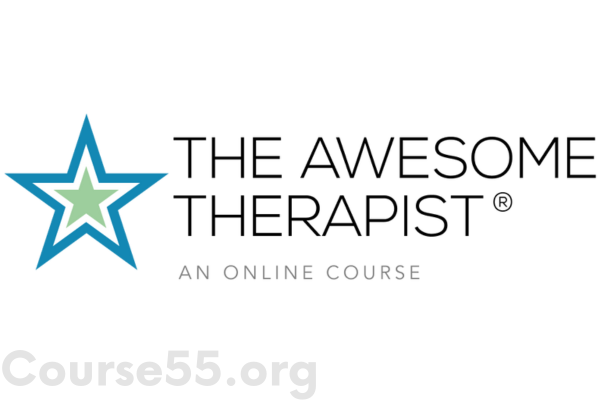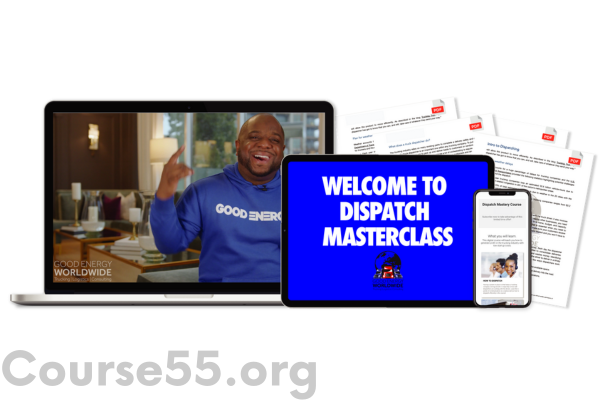Help Clients with Trauma-Related Dysregulation By NICABM
$197.00 Original price was: $197.00.$30.80Current price is: $30.80.
Review: Help Clients with Trauma-Related Dysregulation by NICABM
Content Proof:
Introduction
Trauma often leaves individuals feeling as though they’re lost in a heavy fog—where emotions swirl uncontrollably and clarity seems out of reach. The National Institute for the Clinical Application of Behavioral Medicine (NICABM) addresses this complexity in their Treating Trauma Master Series. This resource serves as a guiding light for therapists, offering a thorough exploration of trauma-related dysregulation. It goes beyond simply identifying trauma and instead delves into the emotional and physiological disruptions it causes. Using frameworks like the “window of tolerance,” the series offers actionable, trauma-informed strategies designed to help clients find stability. It underscores the importance of connection, safety, and acceptance as fundamental aspects of trauma recovery.
Understanding Trauma’s Impact on Self-Regulation
The Disruptive Effects of Trauma
Trauma can significantly impair how people manage their emotions and bodily sensations. Whether arising from early life adversity or later traumatic events, these experiences often fracture one’s capacity for self-regulation. As a result, clients may swing between emotional extremes—caught between states of hyperarousal (heightened anxiety or agitation) and hypoarousal (numbness, dissociation). The Treating Trauma Master Series equips practitioners with tools to help clients recognize these shifts, empowering them to understand how trauma has shaped their regulatory patterns.
The “Window of Tolerance” Framework
One of the central concepts in the series is Dr. Dan Siegel’s “window of tolerance.” This idea refers to the optimal emotional and physiological zone where individuals feel balanced and capable of managing stress. Imagine it as a stable platform—when clients operate within this zone, they function more effectively. However, stepping outside this window, whether through overwhelming anxiety or emotional shutdown, disrupts this equilibrium. NICABM’s program offers strategies to help clients recognize when they’re moving outside their window, teaching techniques to gently guide them back into a state of regulation.

Identifying Dysregulation
Spotting signs of dysregulation is crucial in trauma work. The series provides clinicians with tangible ways to assist clients in becoming aware of their emotional and bodily states. Techniques such as guided mindfulness practices and sensory grounding exercises encourage clients to reconnect with their bodies. Whether it’s noticing the feel of an object or focusing on their breath, these simple exercises help re-establish a sense of control and safety, laying the foundation for deeper therapeutic work.
Strategies for Managing Dysregulation
Fostering Connection
The NICABM series highlights the healing power of human connection as a core tool in trauma recovery. Trauma often isolates individuals, making them feel disconnected from others and themselves. Facilitating meaningful relationships—whether through group support or a strong therapist-client alliance—creates a sense of belonging and safety that fosters regulation.
- Peer Support Networks: Engaging in groups where shared experiences are validated helps clients realize they are not alone in their struggles.
- Therapeutic Relationship: Building a safe, trustworthy bond with a therapist allows clients to feel supported as they navigate vulnerability.
Embracing Acceptance
Another vital approach is helping clients accept their internal experiences without judgment. Trauma survivors frequently carry shame or self-criticism, which compounds dysregulation. The series encourages therapists to guide clients in acknowledging emotions without rushing to fix them, fostering compassion and patience toward themselves.
- Mindfulness Techniques: Practicing non-judgmental awareness through meditation helps clients observe feelings without reacting.
- Reflective Writing: Journaling allows clients to externalize and process their emotions from a safe distance.
Practical Tools for Practitioners
The NICABM series offers a diverse set of actionable techniques therapists can incorporate:
| Technique | Description |
|---|---|
| Grounding Exercises | Directs attention to the present moment, helping reduce overwhelm. |
| Breathing Practices | Employs rhythmic breathing to calm the nervous system. |
| Visualization | Guides clients to imagine comforting, safe scenarios to create inner safety. |
| Somatic Awareness | Encourages tuning into physical sensations to support emotional processing. |
These methods form a well-rounded approach, supporting clients in gradually regaining agency over their emotional and physiological responses.
Continuing Education & Professional Development
Advancing Clinical Skills
Beyond client care, the Treating Trauma Master Series offers valuable opportunities for therapists to expand their expertise. Participants can earn continuing education credits while deepening their understanding of trauma-informed care. Permanent access to the materials—including video lectures, transcripts, and supplementary resources—allows for continuous learning and integration into practice.
Engaging, Research-Based Content
The series is thoughtfully designed to accommodate various learning preferences, offering:
- Video Lectures: Expert insights delivered through visually engaging modules.
- Written Transcripts: Handy references for ongoing study.
- Interactive Components: Prompts and quizzes to reinforce key concepts.
Importantly, the strategies presented are supported by research, reinforcing the efficacy of trauma-informed approaches in enhancing emotional regulation and relational health.
Research-Backed Content
This series stands out not only due to its practicality but also because it is grounded in research. Numerous studies underscore the importance of understanding trauma’s impact. For instance, research has shown that effective trauma treatment correlates with improved emotional regulation and a more profound ability to form healthy connections with others. Furthermore, the series highlights findings from prominent studies that affirm the necessity of trauma-informed care in therapeutic practices, making it a valuable addition to any clinician’s toolkit.
Conclusion
The Treating Trauma Master Series by NICABM is a comprehensive guide for therapists navigating the complexities of trauma-related dysregulation. By exploring the profound ways trauma disrupts emotional regulation, the program introduces essential concepts like the window of tolerance and provides an array of practical tools for helping clients find balance. Through fostering connections, promoting acceptance, and utilizing mindful techniques, practitioners are equipped to support clients on their healing journeys. As clinicians integrate these insights into their practice, they offer clients a path out of the fog of trauma—toward clarity, connection, and empowerment.
Frequently Asked Questions:
Business Model Innovation: We operate a group buying strategy, allowing participants to share costs and access popular courses at reduced prices. This model benefits individuals with limited financial resources, despite concerns from content creators about distribution methods.
Legal Considerations: The legality of our operations involves complex issues. Although we don’t have explicit permission from course creators to resell their content, there are no specific resale restrictions stated at the time of purchase. This ambiguity creates an opportunity for us to provide affordable educational resources.
Quality Control: We ensure that all course materials purchased are identical to those offered directly by the creators. However, it’s important to understand that we are not official providers. As such, our offerings do not include:
– Live coaching calls or sessions with the course author.
– Access to exclusive author-controlled groups or portals.
– Membership in private forums.
– Direct email support from the author or their team.
We aim to reduce the cost barrier in education by offering these courses independently, without the premium services available through official channels. We appreciate your understanding of our unique approach.
Be the first to review “Help Clients with Trauma-Related Dysregulation By NICABM” Cancel reply
You must be logged in to post a review.

 The Experiential Enneagram By Jessica Dibb - The Shift Network
The Experiential Enneagram By Jessica Dibb - The Shift Network  StoryTelling Golden Keys By Michael Breen - NLP Times
StoryTelling Golden Keys By Michael Breen - NLP Times 















Reviews
There are no reviews yet.